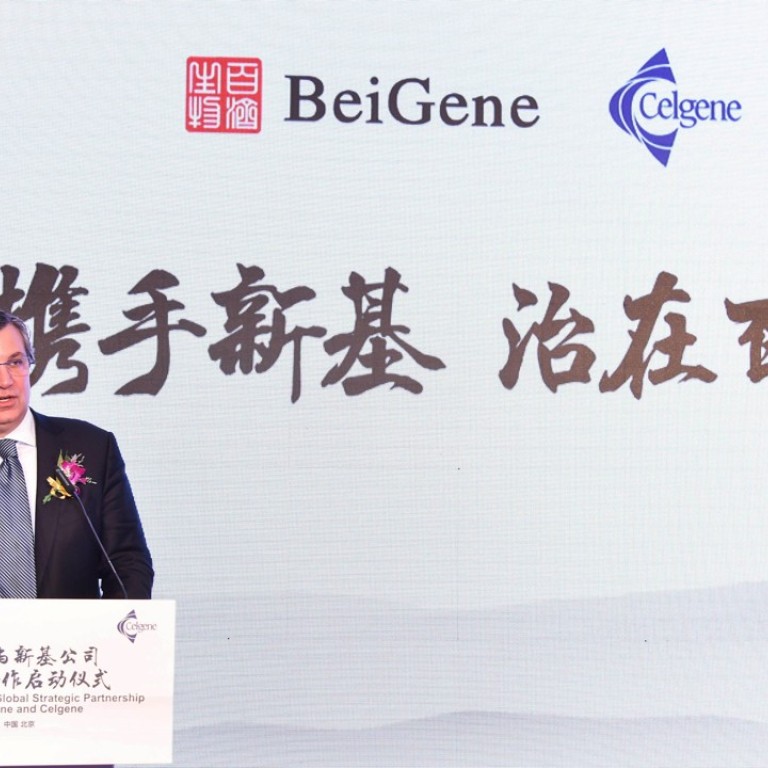
CEO of China oncology start-up BeiGene toils to bring drugs to fruition
John Oyler says the primary goal is to get quick approval for the company’s pipeline of drugs to help patients fight a range of illnesses
Hard work has taken a toll on John Oyler, and that is ironic considering he is from the health care industry.
The 49-year-old American started BeiGene in 2010 in Beijing, an oncology drug maker with a market cap of about US$4 billion and now a Wall Street darling.
Its Nasdaq-listed shares have jumped more than 2.1 times this year, or 84.6 per cent since it unveiled a overseas licensing deal of cancer medicines developed in China in July. According to Bloomberg, the stock was among the top three Chinese American Depositary Receipts (ADRs) held by hedge funds as of October 12.
“Our CEO John was a young and handsome lad when I first met him,” Wang Xiaodong, co-founder and chairman of BeiGene’s scientific advisory board, said at an event to mark its partnership with Delaware-based biotechnology company Celgene in Beijing last month, drawing laughter from the audience.
The deal is the second endorsement the start-up has received from a global partner since Merck Serono, the biopharmaceutical division of Merck, in 2013.
“Our primary goal is to show that our drugs can help patients’ immune system fight a broad range of cancers and get the drugs approved quickly,” Oyler told the South China Morning Post.
A native of Pittsburgh, Oyler started his career at consulting firm McKinsey & Co after graduating from Massachusetts Institute of Engineering (MIT) with a bachelor’s degree in biomechanical engineering and later from Stanford University with an MBA.
Dreaming of starting a pharmaceutical business of his own, he came to Beijing in 2005 and stayed on since.
“What China has is the beginning of a very powerful industry,” Oyler said. “It’s not a surprise that so much brilliant talent is coming back from the US or Europe.” About 30 per cent of researchers working in American academia labs and pharmaceutical companies are from China.
Besides talent, research cost and potential market are two other important factors for starting pharmaceutical businesses.
China is the second largest pharmaceutical market in the world, and is forecast to expand from US$108 billion in 2015 to US$167 billion by 2020, representing annual growth of 9.1 per cent, according to a report by the US International Trade Administration.
Wang, BeiGene’s co-founder, wants to leverage the advantages available to the drug maker. “BeiGene plans to enrol 3,000 to 5,000 patients this year in our clinical trials in China,” he said. “While globally such expense is estimated to be US$130,000 to US$150,000 for each patient, it can be 40 per cent cheaper here.”
When asked about the surge in the stock price, Oyler was rather blunt. “The fundamental is that our organisation needs to develop great drugs and get them approved. If we are not helping patients, we should be worth nothing.”
In response to Wang’s banter on his appearance, Oyler retorted: “I would rather think we age gracefully like fine wine.”

